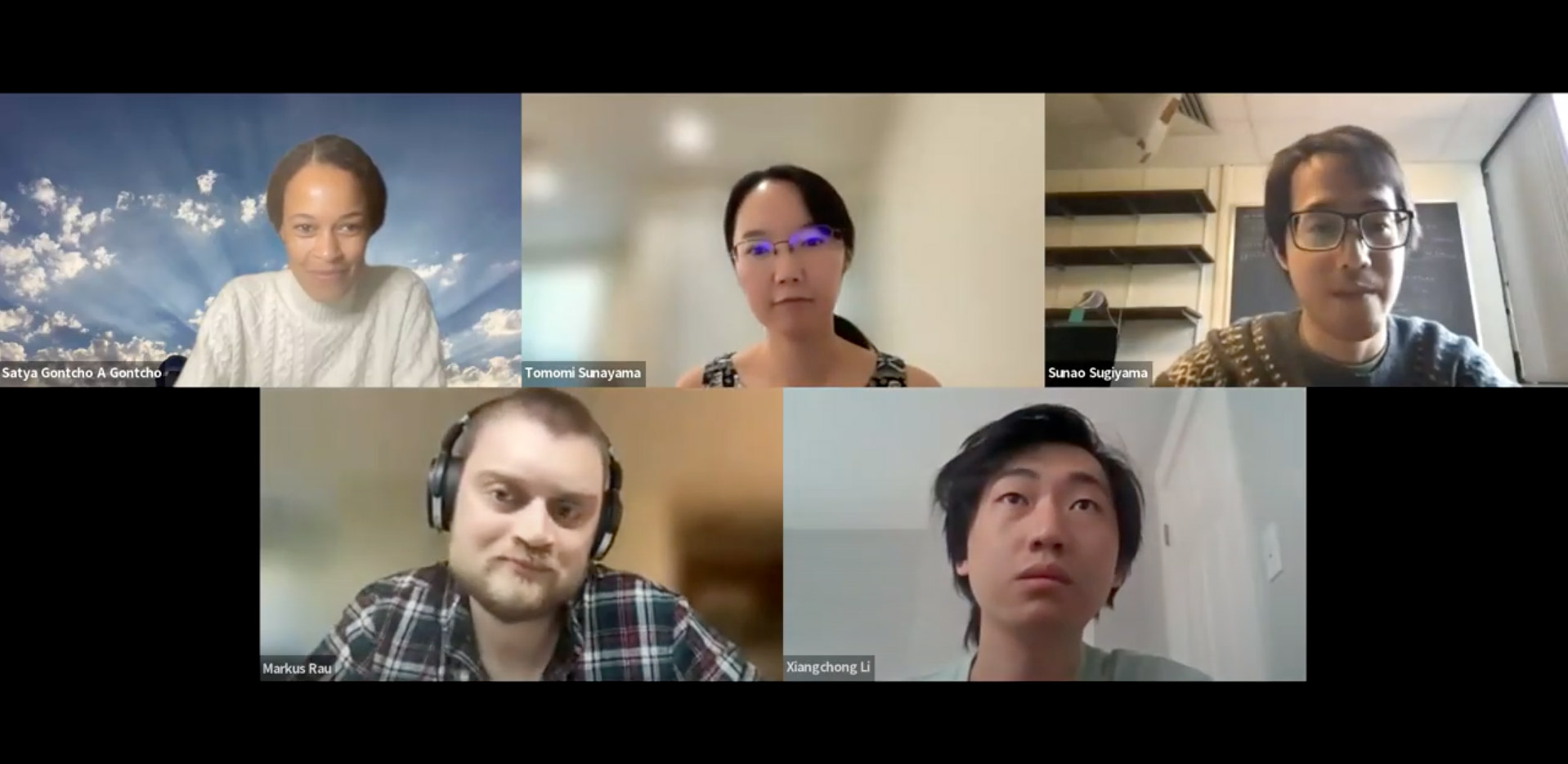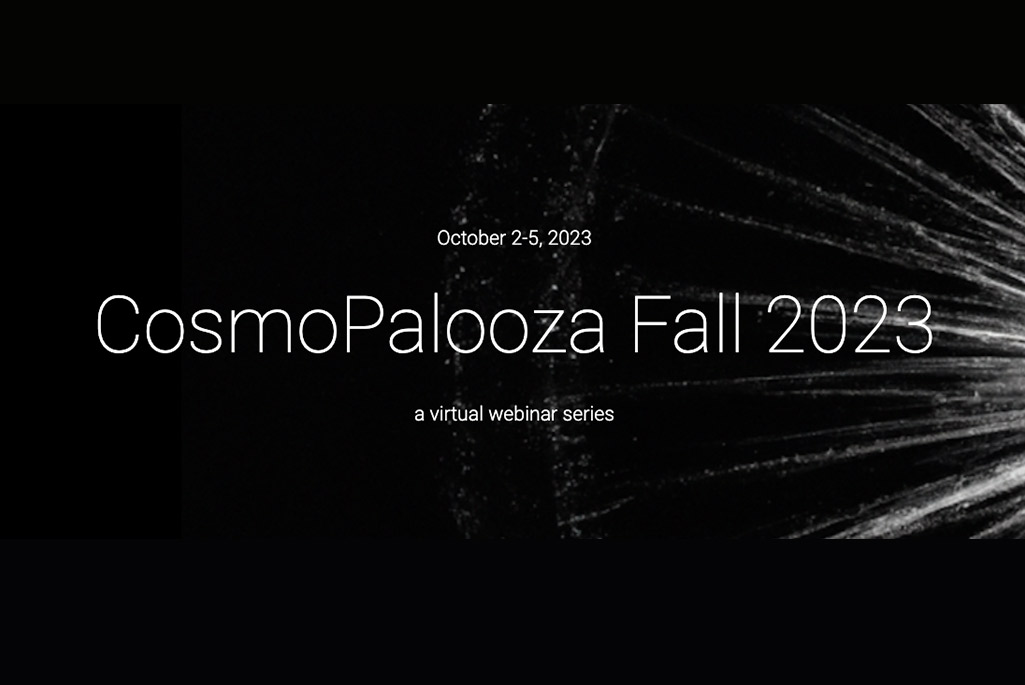Berkeley Lab researchers organized CosmoPalooza 2023, a webinar series showcasing the latest updates from large-scale cosmological surveys and collaborations, on October 2-5.
Satya Gontcho A Gontcho and Anthony Kremin, researchers in Berkeley Lab’s Physics Division, organized CosmoPalooza 2023 on October 2-5. Hosted as a completely virtual event, this webinar series showcases the latest updates from large-scale cosmological surveys and collaborations, now made freely accessible by anyone, anywhere in the world.
Gontcho A Gontcho first launched this event in January 2022, when the American Astronomical Society (AAS) canceled its 2022 winter meeting due to concerns about COVID-19. At that time, she was the chair of the DESI Speaker Board and had been organizing the AAS special session on DESI. In response to the sudden cancellation, she reached out to three other session organizers with a proposal to hold their events as a combined webinar presentation that could be freely accessible to colleagues all over the world without requiring a participation fee. Eric Linder, a research physicist at UC Berkeley’s Space Sciences Laboratory, joined Gontcho A Gontcho in organizing this first iteration of CosmoPalooza in 2022, and he also came up with the name. Anthony Kremin, a postdoctoral researcher in the Physics Division, joined Gontcho A Gontcho to organize CosmoPalooza 2023 from conception to realization.
 The 2023 event was intentionally organized to encourage a sense of connection and to facilitate networking among the global representation of participants. Collaborators from each of the invited cosmological surveys were offered a platform to present updates on their new results, with an emphasis on connecting “a face and a voice” with their presenters and the teams leading the analyses and new results. According to Kremin, “Our goal for the 2023 event was to bring together the global community and allow scientists from around the world to hear about, and ask questions to, people from these collaborations.”
The 2023 event was intentionally organized to encourage a sense of connection and to facilitate networking among the global representation of participants. Collaborators from each of the invited cosmological surveys were offered a platform to present updates on their new results, with an emphasis on connecting “a face and a voice” with their presenters and the teams leading the analyses and new results. According to Kremin, “Our goal for the 2023 event was to bring together the global community and allow scientists from around the world to hear about, and ask questions to, people from these collaborations.”
Indeed, at an institution like Berkeley Lab, early career scientists are well connected with easier access to information and prime networking opportunities. That is one of the privileges of working here, but that privilege is not shared globally,” said Gontcho A Gontcho. “With CosmoPalooza, we aim to remove some barrier level and help create a sense of community independent of one’s institution and collaboration. I find that visualizing the people behind the names on a refereed journal article can help build the confidence one needs to reach out to someone they’ve never met before.
Eight project/survey collaborations were represented during the 4-day event: the Hyper Suprime-Cam Subaru Strategic Program (HSC-SSP), the Prime Focus Spectrograph (PFS), Euclid, Pantheon + Supernova H0 for the Equation of State (SH0ES), the Atacama Cosmology Telescope (ACT), the Rubin Observatory, the Dark Energy Science Collaboration (DESC), the Dark Energy Survey (DES), and the Dark Energy Spectroscopic Instrument (DESI).
Approximately 150-200 participants attended the live two-hour webinar sessions each day. The webinar recordings were then made available online within hours of each live presentation – and they continue to be available and freely accessible via the event website – enabling access by hundreds of additional asynchronous participants worldwide. “We were very intentional in our choice of a two-hour time window, which we hoped would allow the broadest live participation, while also recording it for those who couldn’t attend the live event,” said Kremin.
Berkeley Lab Physics Division Director Nathalie Palanque-Delabrouille observes that “Although other conferences have now restarted with in-person attendance, CosmoPalooza continues to be very well attended, testifying to its importance to the scientific community!”
The organizers wish to thank the Physics Division’s Cosmology Group, and also the Berkeley Lab AV Support for their help and technical support during the online event.
Watch the webinar videos from this event:
Monday, October 2, 2023
Tuesday, October 3, 2023
Wednesday, October 4, 2023
Thursday, October 5, 2023
